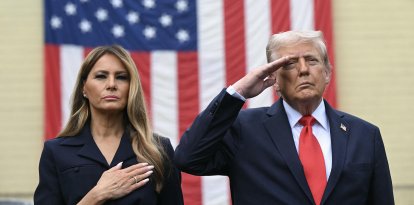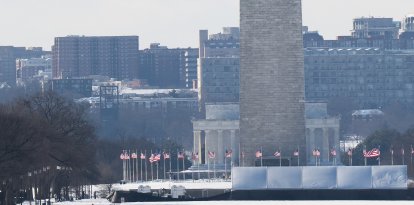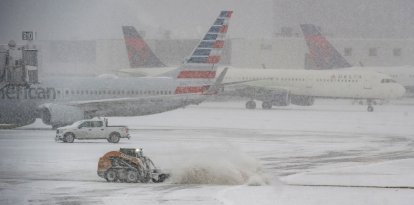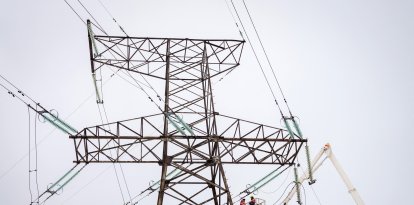United Nations extorting migrants incentivized by open border policies
“We are a business for them [the UN],” Nelda denounces with tears streaming down her face.

The Darien Gap / Adriana García-Flickr.
Voz Media recently documented an interview with Venezuelan asylum seekers encountered while reporting from Yuma, Arizona border. During the interaction, the Venezuelan family described the dangers they faced despite traveling by bus circumventing the jungle route. The “superhighway” was manufactured to create a more orderly and humane migration course following efforts in the Bilateral Arrangement of Migration and Protection by Department of Homeland Security (DHS) Secretary Alejandro Mayorkas and other international agreements arranged by Secretary of State Anthony Blinken.
According to the Better World Campaign, the United States is the most significant financial contributor to the United Nations. The UN portrays itself as aiding forcibly displaced migrants. However, despite the billions of U.S. taxpayer dollars and funding from other countries, interviewed migrants that traveled through the treacherous Darien Gap provide testimonies suggesting that they are forced into paying for this proposed safer route.
Independent journalist with Border Network News and correspondent for Real America’s Voice News Oscar Ramirez, aka Oscar el Blue, is currently covering the border crisis unfolding at the Honduran-Guatemalan border. Oscar el Blue interviewed migrants which described their interaction with the UN. According to the them, there are three migrant camps located within the Darien Gap.
Details divulged during the interviews describe arriving at the second camp located within the Gap, where United Nations officials offer buses to bypass the remaining jungle route. However, despite the portrayal of humanitarian advocacy, the UN workers charge a fee of $15 to $40 per person, per bus, to avoid the remaining pestilent journey. For those unable to pay the bus fee, the migrants are offered an opportunity to work off the ticket cost in exchange for manual labor and cleaning up the camps.
During one of the interviews, Oscar el Blue he speaks with Nelda, an asylum seeker from Venezuela. “I am a mother, I already lost two daughters in Venezuela… Do not put your children through the jungle,” pleaded Nelda. “I cannot sleep because I remember them, [the children], in one moment smiling, then they are taken by the river, dead.”
“We are a business for them [the UN],” Nelda continues with tears streaming down her face. “Everybody makes money… You cannot pass through the jungle without money,” Nelda explains. “There’s millions of people there, [in the jungle], dead because Joe Biden did not close access… Why didn’t he close it from the start?”
Nelda closes her interview by telling Ramirez that someone needs to be held accountable for the millions of people who have died.
Additional interviewed migrants recount their experience walking through waist-high swamps, and treading through dead bodies in the mud who were swallowed by the rapidly increasing river. Others described the deceased hanging from the trees. Men reported being woken up by screams of women being raped. Many of those incentivized to take the journey from South America, hoping to arrive at the U.S. southern border, find themselves being exploited and offered a perceived safer trip by UN officials at a price many cannot afford.
Numerous interviewed migrants described the UN camps as wretched encampments. Some characterized the camps as equivalent to jail cells with conditions worse than the prisons in the communist countries they fled. One man fleeing from Venezuela contemplated returning but was deterred by stories of those raped and killed by Indians attempting to reverse course.
Oscar reported that several groups from Venezuela were sent back due to the DHS orders on October 12th authorizing the deportation of Venezuelans who enter outside of a legal port of entry in the United States. Those from Venezuela are particularly targeted as many Central and Southern Americans do not have proper documentation upon arrival at the Integrated Border Post of Agua Caliente.
The Central American Free Trade Agreement, (CA4) was signed in 2006 between the four Central American countries of Nicaragua, Honduras, El Salvador, and Guatemala. The CA4 agreement allows migrants to transit freely throughout the four countries without interference and with few required documents. Those who are not citizens of the countries part of the CA4 international agreement must register with law enforcement and immigration officials. The migrants without documentation become an easy target of further extortion by travel agents, human traffickers, and smugglers.
Ramirez reports that while many Venezuelans are being turned back due to a lack of documentation, simultaneously, groups from Afghanistan and other countries, also without proper documentation, pass through with no opposition. This further gives the appearance of the specific targeting of migrants from Venezuela.
Despite the DHS order, sources from the Del Rio Texas sector and firsthand reporting from the Yuma sector have yet to show a decrease in the overall number of illegal aliens apprehended at the U.S. southern border. Instead, sources from the two CBP sectors report increased illegal entries claiming national origins from other counties such as Peru and Colombia.

























